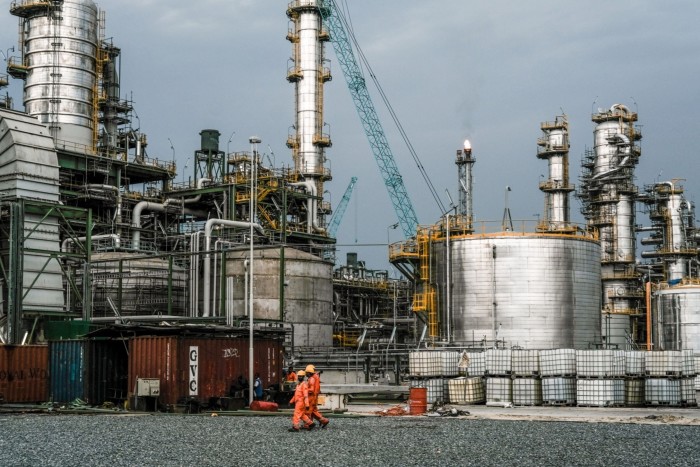The naira-dollar exchange rate is a major factor that will determine the retail price of diesel and aviation fuel from the Dangote refinery, sources tell BusinessDay.
“Exchange rate risk is a big problem the Dangote refinery is trying to avoid in order to pay back all its loans, hence its insistence on selling products in dollars,” a senior source in the downstream sector told BusinessDay.
Sources said diesel and aviation fuel from the Dangote refinery will be sold at market dollar rates to willing buyers to ensure the seamless supply and distribution of refined petroleum products to be produced from the $20bn facility.
As market awaits price list this week
“Marketers will simply compare the price list of Dangote refinery and prices they import with to determine which is profitable for business,” source said.
He added, “Most of the marketers who import diesel are already sourcing their FX at the black-market rates already so buying diesel or jet fuel from Dangote refinery won’t be a problem if the price is right”.
BusinessDay gathered that marketers are eagerly awaiting the release of the Dangote Refinery products’ price list.
“We want to know Dangote petroleum products prices. We will request it so that we can give it to our members.”
Concerning the refining of Premium Motor Spirit, popularly called petrol, sources said the Dangote refinery is still engaging with Nigerian regulators on the pricing template for how the product will be distributed across Nigeria.
The prices of diesel and aviation fuel are fully deregulated commodities, unlike that of Premium Motor Spirit, popularly called petrol, which has been a subject of debate on whether it is being subsidised or not.
“One of the proposals on the table is having a DSDP kind of model with NNPC, who will then sell the products to marketers in naira,” the source said.
He added, “Basically, there are lots of kickbacks against making sure the project does not dollarise Nigeria’s economy.”
Crude oil is sold in dollars and the earnings help fund Nigeria’s government. If all the refineries were working and the Dangote Refinery came on stream, this means all of Nigeria’s crude would be refined locally.
Nigeria’s current production is put at 1.3 million barrels per day (bpd). The Dangote Refinery can refine 650,000 bpd or nearly half of Nigeria’s total production.
But this is unrealistic as the Nigerian government does not own all the oil produced in the country. Oil companies, especially international oil companies, own between 40 and 60 percent of every crude produced in different wells, based on agreements with the government.
This means that the Dangote Refinery and even the state-owned plants if their capacity could be restored, may need to buy crude at the international market, priced in dollars to meet their refining needs. This will translate to a higher pump price without subsidies.
Kayode Oluwadare, a regional energy partner and Director at Energy Compact cautioned against expecting significantly cheaper petroleum products due to the private nature of the project.
Oluwadare explained that although NNPC Limited holds a substantial 20 percent stake worth nearly $3 billion, it is crucial to understand that the business isn’t a public enterprise.
“There is no obligation for the Dangote refinery to sell refined petroleum products below prevailing market prices,” Oluwadare said in an Energy Newsletter seen by BusinessDay.
Kaase Gbakon, a senior economist at the Ministry of Energy and Resources, Saskatchewan, Canada said the pump price of Dangote refinery product is dependent on the refinery gate price and all the components of the different margins such as – transport costs, storage, jetty fees, taxes, and surcharges.
“Unfortunately, not. In the refinery business, the margins can be thin or, at some time, can be wide. However, for a refinery just starting up with “bills” to pay lenders and make returns to shareholders, I expect the refinery’s management to prioritize early positive cash flows,” Gbakon said in a note.


